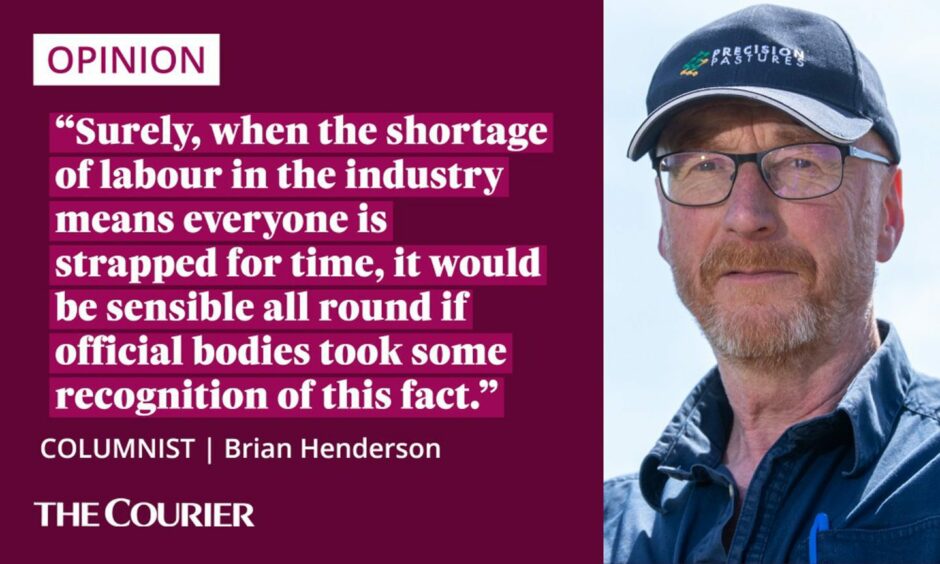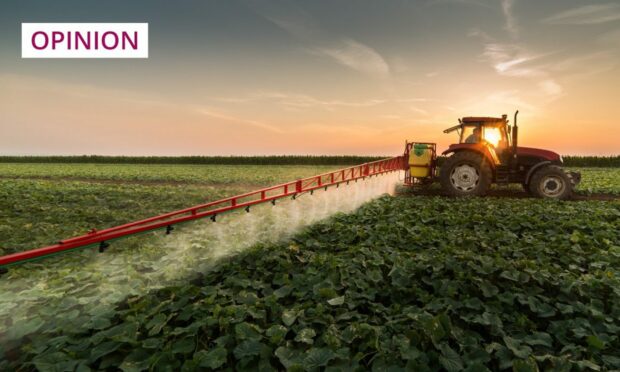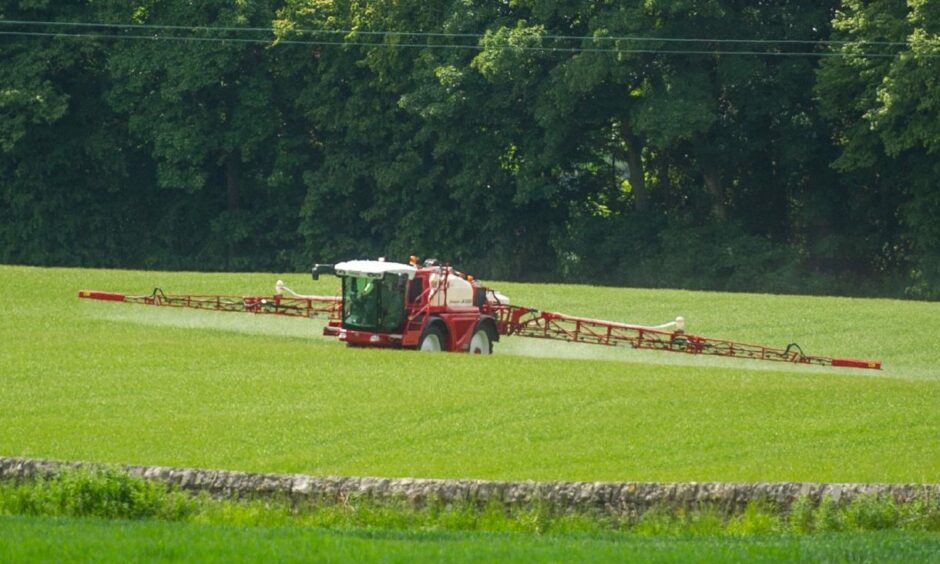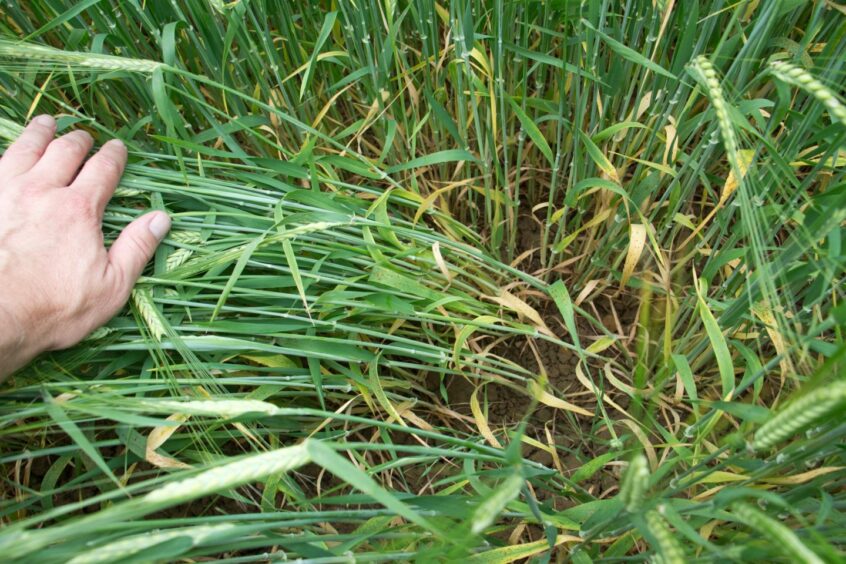Well, if anyone ever gets round to writing the book 101 Ways To Get A Farmer’s Goat, I would guess that unnecessary red tape and the duplication of farm inspections would probably be pretty strong contenders to top the list.
There is universal dislike of the time and effort which is often wasted on what seem to be pointless form filling exercises.
The same applies to the number of people who can come up the farm road and demand to check out some of the businesses facilities or records.
For years much of the box-ticking red tape was blamed on Brussels. And the finger of guilt was always pointed in the direction of the EU as the source of all the petty regulations and inspections which we had to suffer.
To no one’s real surprise, though, uttering the magic words “Brexit will fix it” does not seem to have banished red tape at the promised stroke.

Rather than having a bonfire of the regulations, we have been blinded by a smokescreen.
The new regime seems to be just as good at introducing new rules and regulations.
Meanwhile the authorities lull us into a false sense of security by simply not bothering to consult with the industry, or even ensuring that we know it’s happening.
Plant protection regulations mean even more farm inspections
That would certainly seem to have been the approach with the regulations introduced last year requiring all businesses using plant protection products – that’s crop sprays like weedkillers, fungicides, insecticides, growth regulators etc – to register their details, including how much they were likely to use, with Defra.
However, it has only become clear in the last couple of weeks that the regulations will see a host of powers given to a new set of inspectors.
Operating under the somewhat sinister name of Pesticide Enforcement Officers, these individuals will be entitled to enter and inspect farm buildings and check up on pesticide stores and records.
Defra, which is handling the issue in Scotland as well as England, has said the aim is to ensure compliance with existing legislation on the storage of any sprays used on the farm.
Now this might seem fair enough. But it’s not as if these things aren’t already covered very thoroughly by every farm assurance scheme out there.
And everyone knows that one of the givens when the annual farm assurance audit is being carried out is the fact that the pesticide store, stocks and records will be thoroughly checked.
I know for a fact that Scotland’s leading crop assurance scheme has been pushing the authorities to recognise equivalence in the checks which they carry out, and to accept these as proof of compliance.
So far they have had no luck, with the powers that be stating this is because they are a regulatory body while assurance schemes are voluntary.
Common sense is called for
Sadly it’s the same with a whole host of other statutory bodies – Food Standards Scotland (FSS), the Scottish Environment Protection Agency (SEPA), the HSE and even some of the visits carried out by the agriculture department – all of whom can call and take up a farmer’s time to check up on the same things.
Surely, when the shortage of labour in the industry means everyone is strapped for time, it would be sensible all round if official bodies took some recognition of this fact – and accepted that many of the issues which they are checking up on are already being thoroughly covered.
Not only would this save farmers a huge amount of time and effort – it could also help the tax payer by reducing the financial costs of bank-rolling the inspectors, while at the same time letting the official bodies get on with the core aspects of their jobs.
Maybe what we need to see is the introduction of some Common Sense Enforcement Officers…
Brian Henderson farms a mix of arable and livestock enterprises with his family on their farm in Perthshire. He is a longtime agricultural commentator and a weekly columnist for The Courier.













Conversation